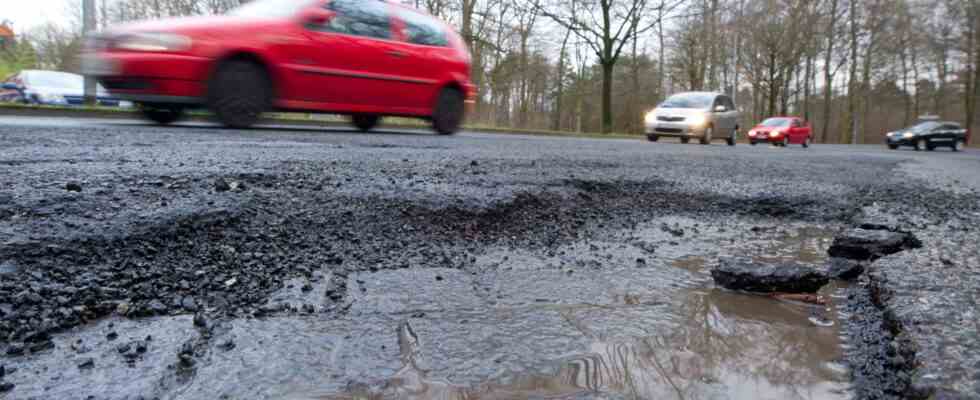Status: 10/27/2022 3:46 p.m
Tax revenue increases. Because spending is increasing even faster, municipalities are expecting a significant minus on the bottom line. There is often a lack of money for investments. The Association of Towns and Municipalities speaks of a dramatic situation.
“I can understand anyone who says: ‘This is no longer a road, it’s an impertinence,'” says Mayor Burkhard Mast-Weisz, looking at the pothole landscape beneath his feet. Again and again the mayor of Remscheid has to justify himself to his citizens.
“I find it very, very terrible,” says Anneliese Winterhoff from the window of her car. The Remscheid resident has to drive over the potholes several times a week. “I’ve already broken the springs on the front of the car and had to have them repaired,” she says. The street is to be renovated in the next three years, the mayor replies: “We can’t do it any earlier.”
Remscheid lacks the staff and money for such renovation projects, says SPD politician Mast-Weisz. The North Rhine-Westphalian city has more than 600 million euros in debt and an investment backlog.
No money for new town hall toilets
The Lord Mayor must therefore constantly prioritize – also in his own house. Some of the toilets in Remscheid town hall have not been renovated since the 1950s and look accordingly. That’s an impertinence for his employees, says Mast-Weisz himself. But he has to decide: “Do I put the money in a school or do I put it in here?”
Remscheid has been dragging old debts around for decades. In the end, however, the city was on the right track, says city treasurer Sven Wiertz. In the years before the Corona crisis, the city was able to reduce debt, but that is now over: “We are again in a situation where we are incurring additional debt,” says the chamberlain.
Significantly higher costs for municipalities
Like many other municipalities, Remscheid is burdened from various sides. The city has to take care of the accommodation of refugees. How the federal government will contribute to these costs is not to be clarified until November. In addition, there are likely to be significantly higher personnel costs in the future. The unions are demanding 10.5 percent more wages for federal and local employees. In addition, the costs for construction projects, for example for new school buildings, have risen sharply.
Although tax revenue will also increase due to inflation, the bottom line is that the Association of Towns and Municipalities expects a significant minus. Gerd Landsberg, general manager of the Association of Towns and Municipalities, sees the municipalities in a “dramatic situation”. You have to be honest and think about what the state can still afford, says Landsberg. Among other things, he brings into play the planned increase in child benefit or the introduction of citizen income. “I just wish for more realism,” says Landsberg.
Mayor demands solution for old debts
Remscheid’s Lord Mayor Mast-Weisz would like help in reducing his old debts. The coalition agreement of the traffic light government states that they want to “help the municipalities to solve the old debt problem”. But nothing has changed since then, instead the financial situation of the municipalities has worsened.
But even the federal government is no longer in the comfortable financial situation of the past few years, when it was even able to take out loans at negative interest rates. Mast-Weisz criticized the federal government for not taking advantage of this phase of low interest rates. The federal government must now solve the old debt problem under more difficult conditions, according to the mayor’s demand.

